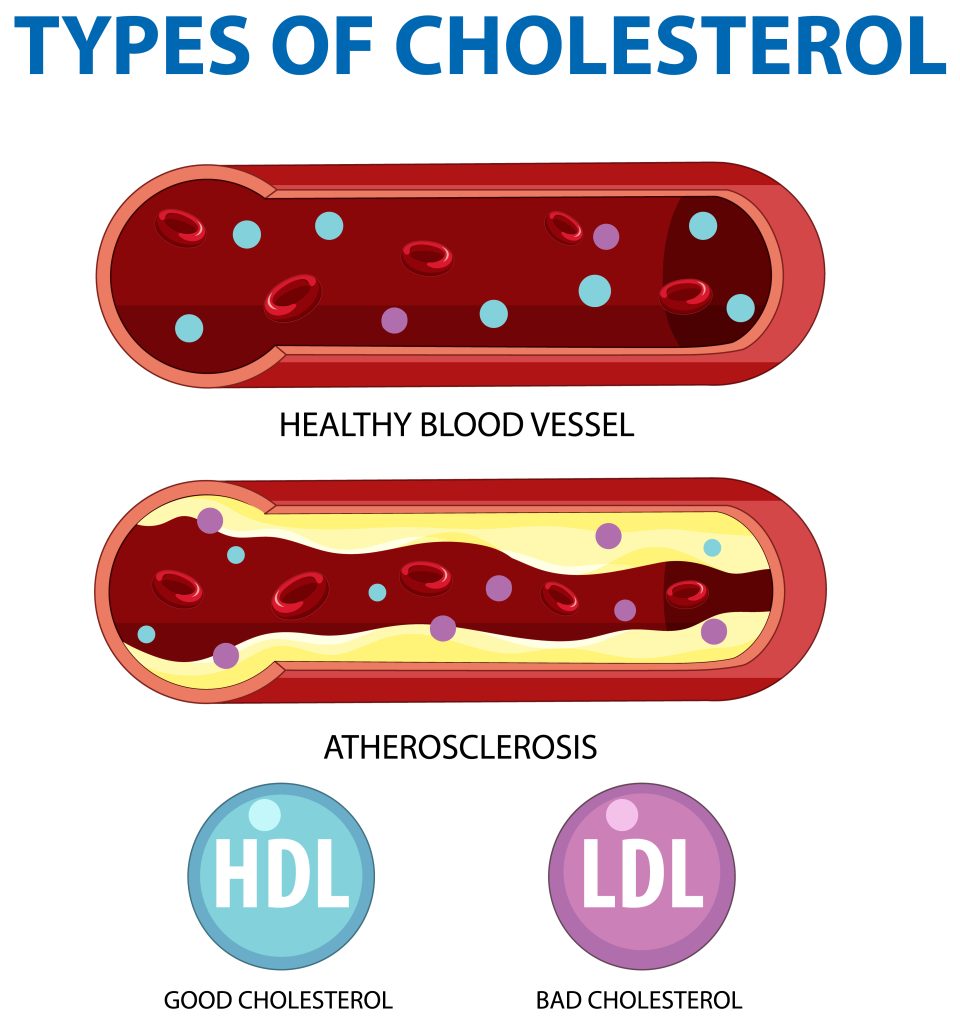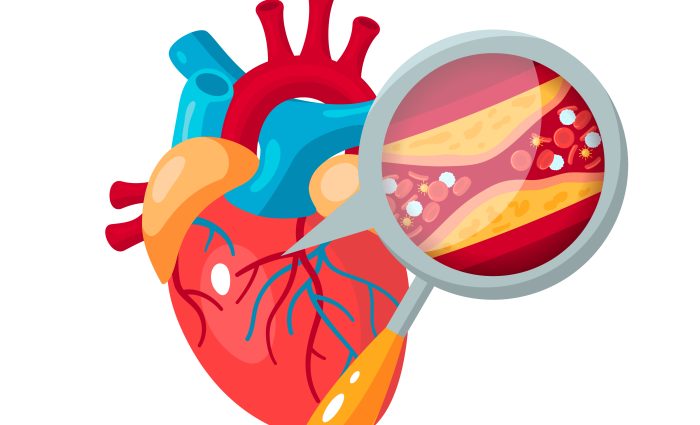What Is Cholesterol?
Cholesterol is a waxy, fatlike substance in your blood. Cholesterol is essential for good health. But too much of the bad kind of cholesterol can put you at a higher risk of heart disease or stroke.

Where does cholesterol come from?
Cholesterol comes from two different places.
- Blood cholesterol comes from your liver and it helps your body build cells and make vitamins and certain hormones. Your body produces all of the cholesterol it needs through this process.
- Dietary cholesterol comes from foods you eat, primarily animal products like meat, eggs, cheese and milk. Dietary cholesterol can lead to health problems if it gets too high.
The Bad kind of Cholesterol
Low-density lipoprotein (LDL) cholesterol is known as the bad kind of cholesterol. High leveLs of LDL cholesterol can lead to heart disease and stroke. The AHA recommends “lower is better” for LDL. Studies suggest an ideal LDL level at or below 100 mg/dl. Adults who maintain this level have lower rates of heart disease and stroke.
The good kind of cholesterol
High-density lipoprotein (HDL) is the good kind of cholesterol. High levels of HDL cholesterol can reduce your risk of heart disease and stroke.
Triglycerides contribute to high cholesterol
Triglycerides are a type of fat in your body. A high level of triglycerides can contribute to problematic cholesterol buildup in your body.
Check your cholesterol to avoid a heart attack or stroke
If too much bad cholesterol is circulating in your blood, it can build up inside the arteries that feed your heart and brain. if the cholesterol buildup gets too thick, it can trap blood clots in your arteries and lead to a heart attack or stroke
It’s important to check your cholesterol to make sure you’re at a healthy level – and healthy lifestyle habits like eating a healthy and balanced diet, mving your body and eliminating tobacco use can all help you better manage your cholesterol levels. Remember to speak with your health care professional about the best treatment plan for you.
FREQUENTLY ASKED QUESTIONS ON CHOLESTEROL
1) Cholesterol testing in Fasting or Non Fasting ?
A). It doesn’t make any clinical significance whether it’s fasting or non fasting Only Triglycerides increase of approx 27mgdl change is noted.
2) Good vs Bad Cholesterol ?
A). To simplify it the smaller the size of the cholesterol particles the higher chances of it causing
blockage in heart arteries, like LDL & others , good cholesterol (HDL) helps in preventing it & by transporting the bad cholesterol.
3) At what age should I test the Cholesterol ?
A). Once screening of lipid profile at age from between 19 to 21. If family history of genetic cholesterol disorder & Heart disorders it’s recommended to check earlier.
4) Can I stop taking statin once my Cholesterol is lower ?
A). It’s recommended to continue the cholesterol tablets even when you have lowered your
cholesterol, it reduces your risk of cardiovascular events.
5) What time should Cholesterol medications to be taken ?
A). Atorvastatin & Rosuvastatin can be taken any time.
6) Side effects of Statins ?
A). Common side effects are muscle pain and it’s variant , but cardiac protections over weights this side effects. New genetic testing helps in resolving & better understanding , which doesn’t cost much.
7) Frequency of testing ?
A). After starting better to repeat in between 4 to 8 weeks . Then after every 6 months to 1 year.
8) Whether controlling bad Cholesterol reduces heart attack ?
A). Yes.
9) What is CT Coronary Calcium Score and its use ?
A). Its non invasive test ,looks at how much calcium is in your coronary arteries. If calcium score is more then it leads to narrowing or blocking of artery that increase risk of getting heart attack.
10) How Diet & Exercise helps in reducing Cholesterol ?
A). Exercise of 2 to 3 kms a day of walking or jogging helps in reducing 14% to 20% in LDL cholesterol levels along with diet management vegetables, fruits, whole grains, legumes, healthy protein sources (low-fat dairy products, low-fat poultry without the skin, fish/ seafood, and nuts), and nontropical vegetable oils; and limits intake of sweets, sugar-sweetened beverages, and red meats.


